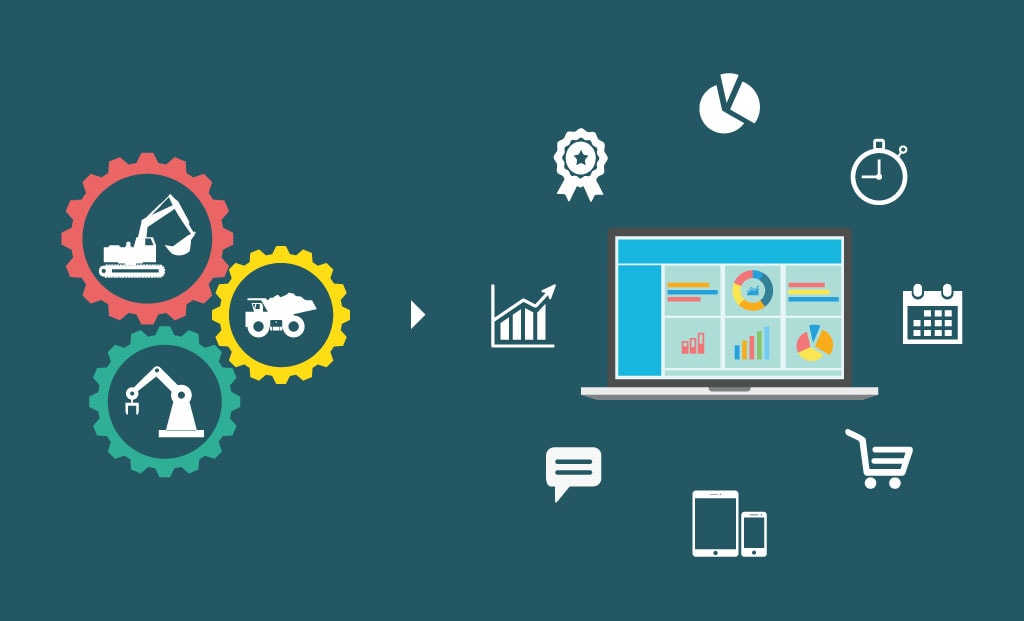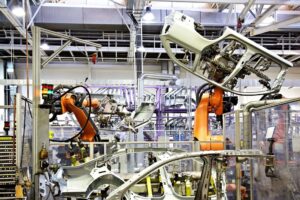Industrial Machinery Manufacturing involves creating heavy industrial equipment and engineer-to-order goods across a wide range of industry segments. Every requirement is unique and manufacturing processes are complex. Due to this, the entire manufacturing process is distributed into multiple projects and managed individually till it converges into a final product. Apart from catering to unique, complex orders, manufacturers have to ensure that they meet them quickly by keeping their production costs down to a minimum.
Efficiently managing every aspect of manufacturing, project management and finances becomes a difficult task for manufacturers. They need an ERP software that is designed to handle the requirements and see them through the entire manufacturing phase. Let us see the critical ERP features that an industrial machinery manufacturer needs.
Quotation and Estimating
With an ERP’s in-built quotation management module, manufacturers can quickly track and respond to Request for Quotations (RFQs) from a centralized dashboard. They can quickly build accurate quotations based on real-time visibility of,
- Multi-level Bill of Materials (BOM)
- Vendor Prices
- Material costs
- Current inventory levels
- Manpower and machine availability
These quotes can be instantly submitted to customers and tracked. The approved quotes can be instantly converted into sales orders at the click of a button.
Comprehensive cost estimates that factor in material pricing, labor costs, operational costs, outside services, vendor commissions, machine maintenance, profit margins etc. can be easily configured to support customer quotes. Based on these, the overall project profitability can be derived and used as a template for future projects.
Material Requirement Planning (MRP)
Industrial machinery manufacturers deal with a huge magnitude of material procurement and movement across the entire supply chain. To ensure that they maintain the right amount of inventory, they would need a tight control over their inventory management, warehouse management and Material Requirement Planning (MRP).
MRP helps anticipate material requirements based on existing sales orders & forecasted demand. In case of a shortfall, it triggers auto purchase of materials and outside services from reliable suppliers through a single-click RFQ generation. It also generates work orders for in-house production, sub-assemblies and finished goods leading to on-time order fulfillment as per the customer due date.
Service Management
Today’s ERP software have an in-built service management functionality to ensure that manufacturers are on top of their service and quality management.
Comprehensive customer portal enables customers to raise service tickets with the manufacturer. They can view their warranty details, past order & service history, service status, shipment history & tracking, invoice and quality management, etc. Service personnel can log in-bound service calls directly for customers. They can schedule service requests and visits on a commonly shared calendar. Tickets can be directly assigned to field personnel based on priority, availability and experience. They can be accessed and updated instantly via hand-held tablet and smartphone devices.
Field Service personnel have instant access to customer data and their equipment service history enabling them to quickly carry out their tasks and close the tickets. They can enter time and expense information directly for a ticket or a set of tickets. They can scan and attach receipts using their mobile phone or tablet. This information is automatically sent to accounting and can be billed with a single click.
They can directly order spare parts from the dealer or pull from stock inventory. They can easily maintain spare parts list for a particular machine.
Project Management and Accounting
Manufacturers work on project basis as their deployment can take months to complete. To handle such large-scale projects, they need an effective project management system that can keep track of the costs, task progress and address roadblocks if any.
With an ERP’s project management module, manufacturers can create project tasks, sub-tasks and assign to specific people. They can easily track and manage due-dates, task deadlines & milestones. Budget categories can be assigned directly to individual tasks, tickets, purchases and work orders. Time and expense data can be recorded against each ticket, purchases, manufacturing and outside services.
Personnel can perform comprehensive analysis of project profitability based on actual costs collected from different business areas such as, service, engineering, manufacturing and purchasing.
Product Lifecycle Management (PLM)
An ERP combines CAD capabilities and Product Lifecycle Management (PLM) system directly within the ERP so that complex designs and specifications can be easily controlled in the design stage itself and the overall impact of engineering changes are minimized on the entire process.
The CAD integration ensures appropriate design changes are incorporated via the CAD interface, updated in the ERP and reflected throughout the product life cycle stages. In addition, optimum material utilization can be achieved as personnel have a comprehensive view of the design, material utilization data, scrap quantity etc. The designs can be instantly shared with customers and suppliers to ensure total collaboration and transparency.
It also provides rule-based solution for configure-to-order, make-to-order, assemble-to-order and engineer-to-order environments. Manufacturers can set up their own sequence of questions, screen layouts, color schemes. They can attach drawings, specifications, notes etc. to the configured product. They can set up pricing rules for dealers, end users, and discount rules (based on customer types, item types etc.)
Purchasing and Material Tracking
ERP aids in comprehensive supply chain collaboration as it can record and track inventory location to the right bin where the necessary material is kept. It provides complete visibility of suppliers, trading partners along with their performance parameters. Manufacturers can provide complete demand and inventory visibility to their suppliers through self-access portals. This ensures that they can raise sales orders and dispatch materials proactively. Quality compliance improves as they get a complete view of product quality parameters shipped by suppliers.
Warehouse management is a breeze as manufacturers can maintain a master inventory list that includes warehouse information, procurement details, shipping information, quality hold, work center and vendor information.
It can be easily integrated with third-party shipping and logistics applications so that customer shipments can be easily tracked until it reaches the customer.
Production Management
With an ERP, manufacturers have a complete view of jobs that are in process, completed or yet to begin on the shop floor. Department schedules can be easily published to the shop floor using electronic dispatch list.
Shop floor personnel can,
- View job schedule and priority
- View work order assignment, work order status, and location of upcoming jobs.
- Clock in directly from the dispatch list.
- Use barcodes, mobile devices or touch screen interface to report work order information directly into the ERP.
- Access part drawings, manufacturing instructions from data collection terminal.
- Input actual time, non-conformance, scrap, setup time, down time from a single terminal
- Print move and completion labels easily
The shop floor console displays work orders that are running on the shop floor along with other status in color-code format. Personnel can also see availability of raw materials for each work order.
Integrated scheduling helps determine start and stop times for all assembly and sub-job operations. Personnel have complete visibility of shop floor performance including efficiency ratios via manufacturing metrics.
Conclusion
Overall, Industrial machinery manufacturers with the capability of an advanced ERP software, can overcome various manufacturing challenges and meet customer requirements with ease.
We, at OmegaCube understand the unique requirements of Industrial machinery manufacturers. Our flagship ERP software, OmegaCube ERP meets their unique needs, automates critical workflows and manufacturing processes and helps them increase their efficiency.






